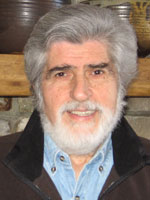Livingston College Yearbooks
[Also see Alumni Memories; Deans’ Reflections; Documentation of Livingston College History.]
Livingston College opened its doors in 1969. No yearbooks were produced for the graduating classes of 1970, 1971, and 1972, which included transfer students from other colleges.
Livingston in the Retrospect, 1969-1973, was published as a memento for the first full four-year graduating class in 1973. It included photos of students and organizations, as well as letters from officials, although not photos of the graduating seniors.
The first traditional Livingston College yearbook was published in 1974.
In 2006, Livingston College admitted its final four-year cohort, the Class of 2010. The final Livingston College yearbook was published in 2007.
Five Livingston College yearbooks, as well as older yearbooks from other Rutgers colleges and schools [* see note near bottom of page], are online and fully searchable through the Rutgers University Libraries (RUL) site.
All of those yearbooks, plus many additional yearbooks, are available online through the Internet Archive as listed below. This project is made possible through financial support received from the Rutgers University Alumni Association.
There are no extra yearbooks available for purchase through the Livingston Alumni Association or Rutgers University.
The yearbooks pictured below are available online via the Internet Archive via the cover image or the “IA copy” and “RUL online copy” links below each table. Most yearbooks are also available in the second-floor reference area of the Carr (Kilmer) Library, on Rutgers’ Livingston campus in Piscataway, for in-person use only, under call number REFERENCE .
The volume numbers are as listed in each publication, even though the volume numbers are inconsistent (with some numbers skipped, repeated, or going backward). Note that the yearbook title was not always printed on the cover.
| 1973 | 1974 | 1977 | 1978 | 1980 |
- 1970, 1971, 1972: [Yearbook not published.]
- 1973: Livingston in the Retrospect, 1969-1973. IA copy.
- 1974: We the People. IA copy. RUL online copy. Carr Library copy.
- 1975: [Yearbook not published.]
- 1976: [Yearbook not published. Photos of the Class of 1976 are included in the 1977 yearbook. See note below.]
- 1977: The Rock, Volume II. IA copy. RUL online copy. Carr Library copy.
Note: 1976 graduates are pictured on pages 22-31, and 1977 graduates are pictured on pages 204-244. (These page numbers correspond with the printed editions. The paging in the digital editions listed above is slightly different since the scanned files count every page, such as the cover, blank pages, and index pages.) - 1978: The Rock, Volume III. IA copy. RUL online copy. Carr Library copy.
- 1979: [Yearbook not published. Photos of the Class of 1979 are included in the 1980 yearbook. See note below.]
- 1980: The Rock, Volume IV [lists “1979” on spine]. IA copy. RUL online copy. Carr Library copy.
Note: 1979 graduates are pictured on pages 42-85, and 1980 graduates are pictured on pages 88-119. (These page numbers correspond with the printed editions. The paging in the digital editions listed above is slightly different since the scanned files count every page, such as the cover, blank pages, and index pages.)
| 1981 | 1982 | 1983 | 1984 | 1985 |
- 1981: The Last. IA copy. RUL online copy. Carr Library copy.
- 1982: The Rock: A Plateau for a New Beginning. IA copy. Carr Library copy.
- 1983: Strength Through Diversity. IA copy. Carr Library copy.
- 1984: Strength Through Diversity. IA copy. Carr Library copy.
- 1985: Senior Record. IA copy.
| 1986 | 1987 | 1988 | 1991 | 1992 |
- 1986: The Experience. IA copy. Carr Library copy.
- 1987: In Quest of Excellence. IA copy. Carr Library copy.
- 1988: 1988 [Livingston College yearbook]. IA copy. Carr Library copy.
- 1989, 1990: [Yearbook not published.]
- 1991: Diversity: Not Just a Generic College, Volume 1. IA copy. Carr Library copy.
- 1992: Diversity: A Style of Our Own, Volume Two. IA copy. Carr Library copy.
| 1993 | 1994 | 1995 | 1996 | 1997 |
- 1993: Diversity: A Higher Form of Education, Volume Three. IA copy. Carr Library copy.
- 1994: Diversity: So Much More to See, Volume IV . IA copy. Carr Library copy.
- 1995: Diversity: Out to Change the World – 25th Anniversary. IA copy. Carr Library copy.
- 1996: Diversity: All But a Memory. IA copy. Carr Library copy.
- 1997: Diversity: With the Passage of Time, Volume VII. IA copy. Carr Library copy.
| 1998 | 1999 | 2000 | 2001 | 2002 |
- 1998: Diversity: Memorable Reflections, Volume VIII. IA copy. Carr Library copy.
- 1999: Diversity: Livingston College Common Ground, Volume IX. IA copy. Carr Library copy.
- 2000: Diversity: Livingston in the Millennium. IA copy. Carr Library copy.
- 2001: Diversity: Making Connections, Volume XI. IA copy. Carr Library copy.
- 2002: Diversity: A College Tale, Volume XI. IA copy. Carr Library copy.
| 2003 | 2004 | 2005 | 2006 | 2007 |
- 2003: Diversity: Roots of Knowledge, Volume XIII. IA copy. Carr Library copy.
- 2004: Diversity: Eyes of the World, Volume 12. IA copy. Carr Library copy.
- 2005: Reflections: Reflect. IA copy. Carr Library copy.
- 2006: Reflections: Changing Faces, Changing Places, Volume 14. IA copy. Carr Library copy.
- 2007: Reflections: Here Today. IA copy. Carr Library copy.
- 2008, 2009. 2010: [Yearbook not published.]
* RUL has also scanned yearbooks from other current and former colleges and schools of the university, specifically (listed from oldest to newest):
- Rutgers College (1871-1872, 1874-1875, 1877, 1888-1913)
- New Jersey State College of Agriculture (1913-1916, 1921)
- Douglass College (1922-1926)
- College of Pharmacy (1926, 1928-1929)
- Newark College of Arts and Sciences (1937-1940)
- Rutgers-Camden (1952-1956)
